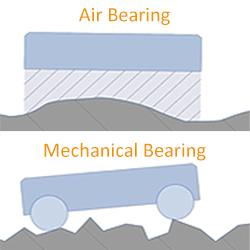Now Available: Global Industrial Robots Market Forecast And Growth 2015-2025
Future Market Insights has announced the addition of the "Industrial Robots Market: Global Industry Analysis and Opportunity Assessment 2015-2025" report to their offering.
An industrial robot is an automatically controlled, multipurpose manipulative programmable and reprogrammable automatic machine applied to perform painting, welding, assembly, packaging, testing and product inspection etc. Industrial robots perform such tasks with high precision, speed and efficiency.
Global Industrial Robots Market: Segmentation
The global industrial robots market can be segmented on the basis of Types, Industry, Geography and Functions. On account of types, the global industrial robots market can be segmented into cylindrical robot, parallel/delta robot, articulated robot, Cartesian robot and SCARA (Selective Compliance Assembly Robot Arm). On the basis of industry, the global industrial robots market can be segmented into chemical-rubber-plastics industry, construction industry, pharmaceutical industry, food and beverages industry, electrical and electronics industry and automotive industry. Considering geography, the global industrial robots market can be segmented into Americas, Asia Pacific, Europe and Rest of the World. On the basis of functions, the global industrial robots market can be segmented into welding robots, painting robots, material handling robots, measurement-inspection and testing robots, packaging robots, cutting grinding and debarring robots.
Global Industrial Robots Market: Drivers
The increase in demand for automation in industries is a key driver to the global industrial robots market. Moreover, increase in labor costs and need for efficient manufacturing process is driving the global industrial robots market. Rapid adoption of industrial robots for non-automotive applications, increase in productivity, reduction in manufacturing costs and modernization of automotive industry due to the use of industrial robots are some of the key drivers fuelling the growth of the global industrial robots market. Any kind of dull, dangerous or dirty task can be accomplished using industrial robots. These are some additional factors driving the global industrial robots market.
Global Industrial Robots Market: Restraints
While the overall global industrial robots market is growing, some safety concerns including inaccuracies in the operation of industrial robots by humans is a major challenge to the market. With the economic recession, many companies experienced stagnation in growth which is another factor affecting the global industrial robots market to fall. High installation and maintenance cost has led to the slowdown of global industrial robots market. High installation and system engineering expenses also restrict companies for adopting industrial robots for carrying out their manufacturing processes.
Global Industrial Robots Market: Trends
The major trends in the global industrial robots market include advancements in navigation systems and artificial intelligence, omnipresence of the internet and rise in hand held devices like laptops, palmtops and smartphones, smart watches and tablets. Moreover, competition among different industries is making maximum companies to adopt industrial robots. Development of collaborative robots, launch of application specific robots and growing penetration in SMEs are the key trends emerging in the global industrial robots market.
Global Industrial Robots Market: Key Players
The major companies playing a major role in manufacturing and supply of industrial robots are FANUC Corporation, ABB Ltd., Kawasaki Heavy Industries Ltd., YASKAWA electric corporation, KUKA AG, Panasonic Corporation, Denso Corporation, Universal Robots, Nachi Robotic Systems Inc., Epson electronic company, Stubli International AG, Yamaha Motor Company and many others.
Request Free Sample@ http://www.futuremarketinsights.com/reports/sample/rep-gb-948
Featured Product

PI USA - Hexapods for 6-Axis Precision Automation
PI Hexapods simplify multi-axis alignment / positioning with a programmable pivot point, tool/work coordinate systems, virtual programming software.
